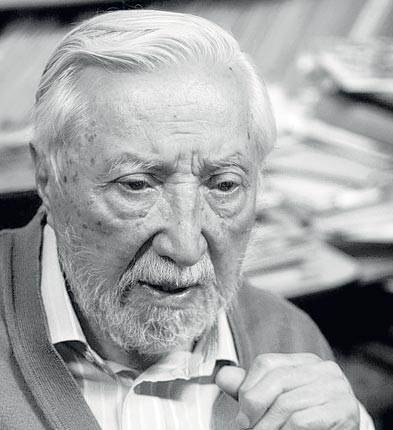Luis Corvalan: Communist who helped Allende become Chile's president and was later exchanged for the Soviet dissident Bukovsky

The leader of Chile's Communist Party for more than three decades, Luis Corvalan was a driving force behind the election of the socialist president Salvador Allende in 1970.
When Allende was overthrown, and died, in a military coup led by General Augusto Pinochet in 1973, Corvalan was arrested and sent to a series of detention camps. Three years later, at Zurich airport, he was released and flown to Moscow in a highly-publicised, spy-style swap for Vladimir Bukovsky, a Soviet dissident jailed for "anti-Soviet propaganda" who now, aged 67, lives quietly in Cambridge.
Such was Corvalan's importance to the then Soviet leader Leonid Brezhnev that he became a VIP guest in Moscow, treated like a statesman. Brezhnev had already awarded him the Lenin Peace Prize while he was detained in Chile. During his exile in Moscow, Corvalan remained Secretary-General of the Chilean Communist Party and remained so until he returned to his homeland in 1988 to witness the restoration of democracy. He stepped down as party leader in 1989 but remained on the Central Committee and active as a communist for the rest of his life .
Luis Corvalan Lepe was born in Pelluco, just outside the southern Chilean port of Puerto Montt, in September 1916 to Moises Corvalan and Adela Lépez (he would later drop the "z" from his maternal surname). After going to school in the town of Tomé he joined the Communist Party at the age of 16, trained as a teacher, but found himself working underground as a journalist during most of the 1940s and 50s when the party was banned and he spent spells in detention camps at Pitrufquén and Pisagua. With the party legal again he was elected Secretary-General of the Communist Party in 1958 and twice as a national senator, serving from 1961 until 1977.
As the communist leader of a large South American nation during the Cold War of the late 1950s, '60s and '70s, Corvalan was a force to be reckoned with, one who instilled at least unease in successive US governments and presidents starting with Dwight D Eisenhower. After Fidel Castro's 1959 revolution, but especially after Castro declared himself a communist in 1961, the Americans became increasingly concerned with and focussed on events to their south.
When Allende, a socialist heading the Unidad Popular [Popular Unity] coalition with Corvalan's Communist Party support, won the presidency in 1970, President Richard Nixon was more than uneasy. He was already fighting communists in Vietnam and had urged the CIA to do all they could do keep Allende and his communist allies out of power. After Pinochet's forces stormed the presidential palace in Santiago on 11 September 1973, Allende was found shot dead and Pinochet took power as a military dictator, the US denied directly backing the coup but Nixon's Secretary of State Henry Kissinger admitted: "we helped them ... create the conditions."
Corvalan, his only son Luis Alberto and the communist singer/songwriter Victor Jara were among the thousands of leftists rounded up and detained. Jara was tortured and executed a few days later, making Corvalan the highest-profile Chilean detainee in the high-security detention centre on Dawson Island in the Strait of Magellan. Corvalan's son was also tortured and would die of his injuries two years later in exile in Bulgaria.
It was on 18 December 1976, on the tarmac at Zurich's Kloten airport, that Corvalan, flown in from Santiago, and the Soviet dissident Bukovsky, flown in from Moscow, were exchanged. Brezhnev, whose 70th birthday was the following day, had been pushing for the deal as a "birthday present" since the Chilean was his epitome of a Latin American communist, a staunch Soviet ally on the same hemisphere as the United States.
Corvalan lived in Moscow with his wife and daughters until 1988 when Russian secret service agents helped him get back to Chile clandestinely via Argentina, after plastic surgery and with a false name and CV. The restoration of democracy the following year allowed him to come out in the open.
Such was Corvalan's prominence and respect in Chile, even among his opponents to the right, that his wake was held in the National Congress building in the capital, Santiago.
Phil Davison
Luis Corvalan, politician and activist: born Pelluco, Chile 14 September 1916; married Lily Castillo Riquelme (three daughters); died Santiago 21 July 2010.
Join our commenting forum
Join thought-provoking conversations, follow other Independent readers and see their replies
Comments